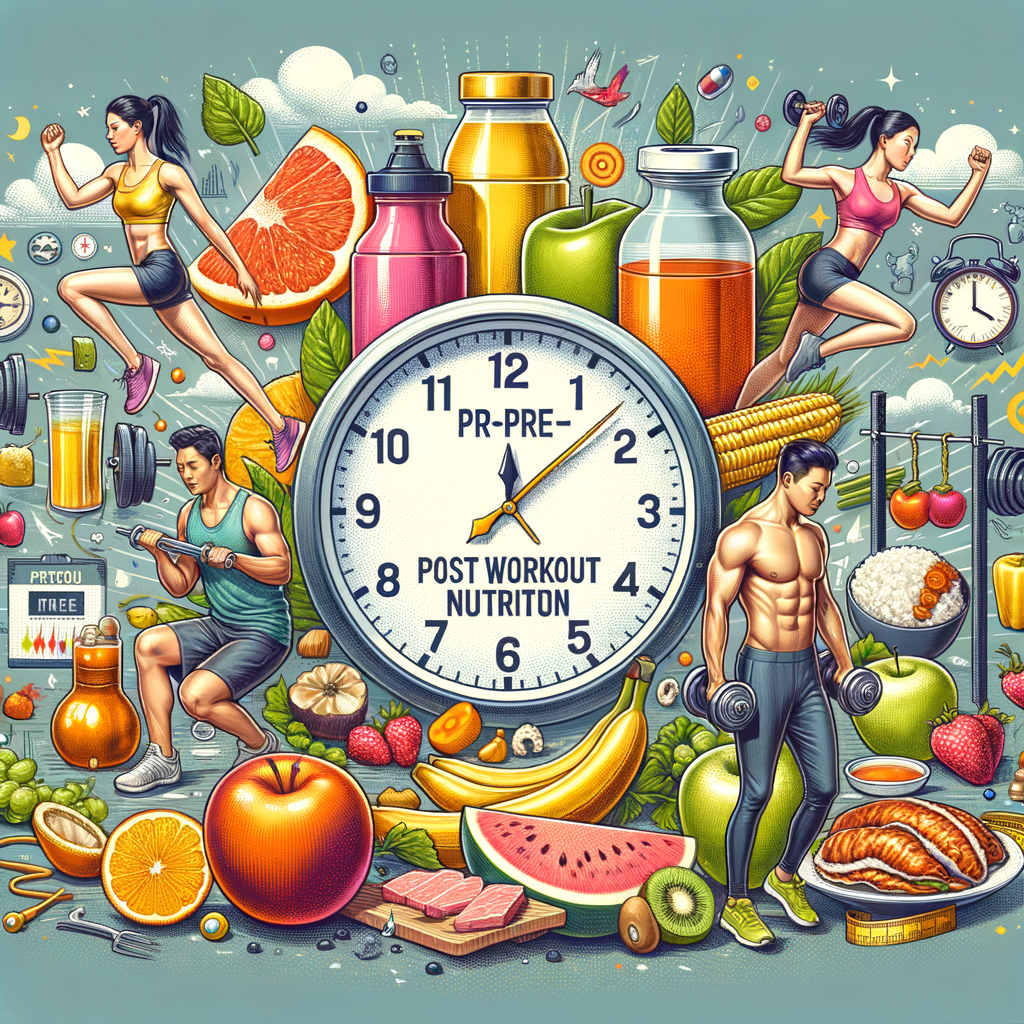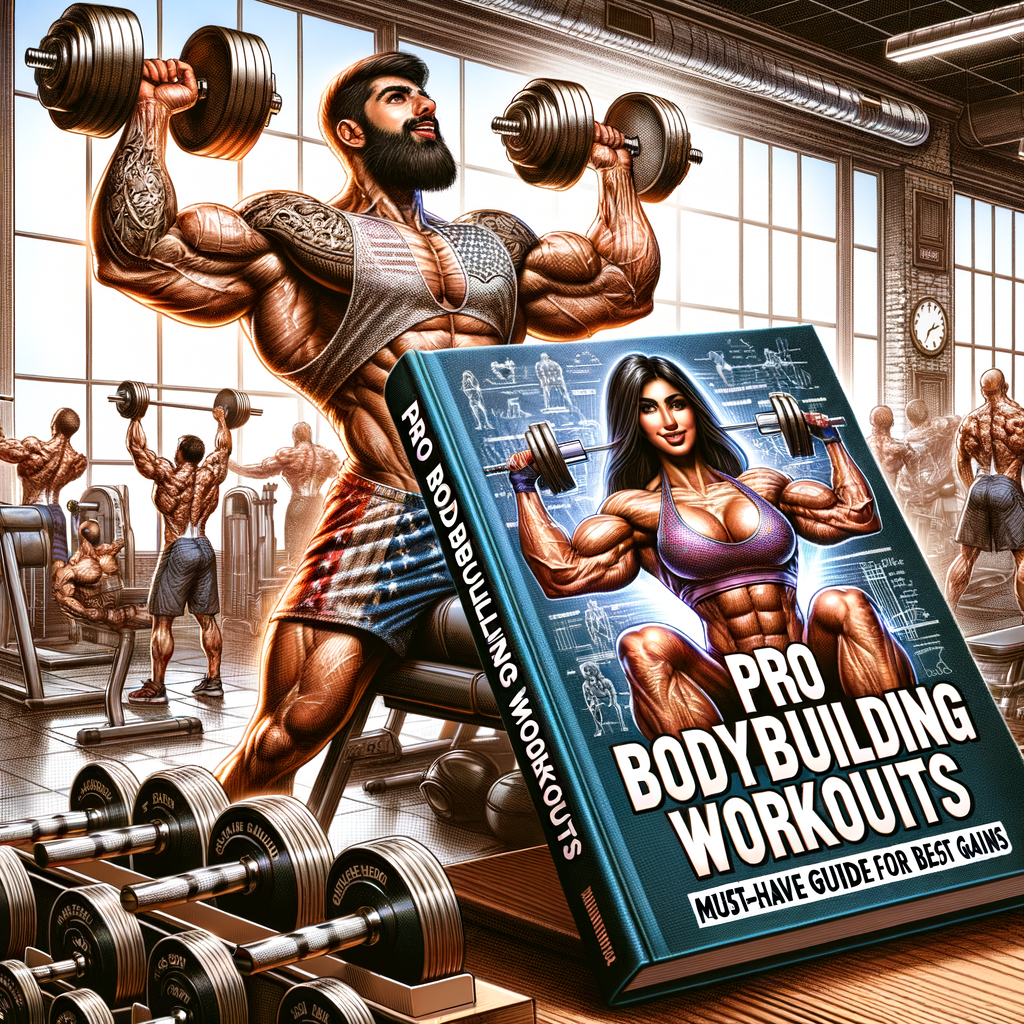- Understanding Pre and Post Workout Nutrition
- The Importance of Pre Workout Nutrition
- Key Nutrients to Include Pre Workout
- Pre Workout Supplements: A Quick Insight
- Timing Your Nutrition
- The Role of Post Workout Nutrition
- Essential Nutrients Post Workout
- Sample Post Workout Meals
- The 30-Minute Recovery Window
- Hydration: A Crucial Component
- Finding What Works for You
- Common Mistakes in Pre and Post Workout Nutrition
- Supplementing Wisely
- FAQs About Pre and Post Workout Nutrition
- Conclusion
- References
Understanding Pre and Post Workout Nutrition
Nutrition plays a crucial role in maximizing your fitness results. It’s not just about lifting weights or running miles; what you eat before and after your workouts significantly impacts performance and recovery. This blog post dives into the essential components of pre and post workout nutrition, offering practical tips that support your fitness journey.
The Importance of Pre Workout Nutrition
Pre workout nutrition fuels your body for the challenges ahead. When you consume the right foods, you experience increased energy, improved performance, and enhanced focus. Conversely, if your body lacks essential nutrients, you may feel fatigued, weak, and unable to push yourself.
Start by considering the timing of your meal. Aim to eat a balanced meal 2-3 hours before your workout. This meal should consist of a blend of carbohydrates, protein, and healthy fats. Carbohydrates provide energy, while protein helps with muscle repair. Healthy fats can keep you satiated.
Example Pre-Workout Meal:
– Grilled chicken breast
– Quinoa
– Steamed broccoli
– A drizzle of olive oil
If you’re short on time, try a smaller snack 30 minutes to an hour before your workout. Choose easily digestible options like:
– A banana with almond butter
– Greek yogurt with honey
– A smoothie made with fruits and protein powder
Key Nutrients to Include Pre Workout
In your pre workout meal, focus on these key nutrients to enhance your performance:
1. Carbohydrates: They replenish glycogen stores, providing your muscles with the energy they need. Opt for complex carbs like brown rice, oats, or sweet potatoes.
2. Proteins: Consuming protein helps to minimize muscle breakdown. Lean meats, eggs, and plant-based proteins are excellent choices.
3. Fats: Incorporate healthy fats in moderation. Avocados, nuts, and seeds can contribute to sustained energy.
4. Hydration: Don’t forget to hydrate. Aim for at least 16-20 ounces of water 1-2 hours before exercise.
Pre Workout Supplements: A Quick Insight
Many athletes consider pre workout supplements to enhance energy and concentration. Caffeine and beta-alanine are popular choices. Caffeine boosts endurance and helps delay fatigue, while beta-alanine aids in reducing muscle soreness. However, always consult a doctor before adding supplements to your routine.
Timing Your Nutrition
Timing is crucial in pre workout nutrition. Eating too early might leave you sluggish, while eating right before workout could lead to discomfort.
– 2-3 Hours Before Workout: Have a balanced meal.
– 30-60 Minutes Before Workout: Go for a snack.
Here’s a quick chart for reference:
| Time Before Workout | Suggested Food |
|———————|———————|
| 2-3 Hours | Balanced Meal |
| 30-60 Minutes | Light Snack |
The Role of Post Workout Nutrition
Post workout nutrition is just as critical as pre workout meals. After exercise, your muscles need to recover and rebuild. Providing your body with the right nutrients immediately after can hasten recovery and improve performance in your next workout.
Within 30-60 minutes post workout, aim to consume a meal or snack high in protein and carbohydrates. This speeds up recovery and replenishes glycogen stores depleted during exercise.
Essential Nutrients Post Workout
After working out, focus on these nutrients:
1. Proteins: Essential for muscle repair. Aim for 20-30 grams of protein.
2. Carbohydrates: Help to replenish glycogen stores. Choose whole grains, fruits, or starchy vegetables.
3. Fluids: Rehydrate with water or electrolyte drinks to replace lost fluids.
Sample Post Workout Meals
Here are a few ideas for your post workout nutrition:
– Grilled Salmon with Sweet Potato: Rich in Omega-3 fatty acids and excellent for muscle recovery.
– Protein Shake with Banana: Quick, convenient, and a good mix of protein and carbs.
– Egg Omelet with Spinach and Whole Grain Toast: Offers protein, healthy fats, and necessary carbs.
The 30-Minute Recovery Window
Maximize your recovery by focusing on nutrition within 30 to 60 minutes after your workout. This time frame is critical for muscle repair and recovery, known as the “anabolic window”.
Having a balanced post workout meal restores lost nutrients and supports faster recovery. Eating within this timeframe prevents muscle soreness and promotes better adaptation from your training.
Hydration: A Crucial Component
Hydration ties both pre and post workout nutrition together. Water plays a pivotal role in performance and recovery. When you’re hydrated, your body can function better, your muscles can work efficiently, and your mind remains sharp.
Monitor your fluid intake during exercise. A good rule of thumb is to drink about 16-24 ounces of water for every hour you work out. After exercising, replace fluids lost during your workout by drinking sufficient water or electrolyte-rich beverages.
Finding What Works for You
Everyone’s body responds differently to food. It’s essential to experiment with various pre and post workout meals to discover what optimizes your performance. Listen to your body’s signals and adjust accordingly. Trial and error can lead you to find the best strategy for your unique needs.
Common Mistakes in Pre and Post Workout Nutrition
While focusing on nutrition, you might overlook some common pitfalls:
1. Skipping Meals: Don’t skip breakfast or your pre workout meal. This can lead to decreased performance.
2. Too Much Added Sugar: Powdered drinks or bars often hide sugars that may result in energy crashes later.
3. Ignoring Hydration: Hydration before workouts is just as important; don’t wait until you feel thirsty.
Supplementing Wisely
Navigating supplements can be challenging. Before incorporating any pre or post workout supplements, do your research. Not all supplements are effective and some may contain harmful ingredients. Always opt for high-quality brands and consult a professional to ensure they align with your fitness goals.
FAQs About Pre and Post Workout Nutrition
1. What should I eat before a morning workout?
A banana with peanut butter or a smoothie with protein powder works well.
2. Is it necessary to eat right after exercising?
Yes, consuming protein and carbs helps in muscle recovery and replenishes energy stores.
3. Can I skip carbs after my workout?
Carbohydrates are crucial post workout for restoring glycogen levels. It’s not advisable to skip them.
4. How much protein do I need after a workout?
Aim for 20-30 grams of protein post workout to promote muscle recovery.
5. Should I use protein shakes or real food?
While protein shakes are convenient, real food provides additional nutrients. Choose what suits you best.
6. Can I eat junk food if I work out regularly?
Occasional treats are fine, but a balanced diet is key for optimal performance and recovery.
7. What are the best snacks for a workout?
Options like Greek yogurt with fruit, protein bars, or trail mix are great before workouts.
8. How does hydration affect performance?
Proper hydration ensures that your muscles function efficiently and helps maintain energy levels.
9. Is it okay to eat a large meal before working out?
Avoid large meals to prevent discomfort. Stick with a balanced meal 2-3 hours before.
10. Can I eat whatever I want after a workout?
While you can enjoy your food choices, prioritizing balanced meals helps achieve your fitness goals.
Conclusion
Pre and post workout nutrition isn’t just about filling up. It’s about fueling your body strategically to enhance performance and recovery. Every meal you consume plays a role in your fitness journey. By focusing on essential nutrients and timing, you can maximize your efforts in the gym. Good luck on your fitness journey!
References
1. Academy of Nutrition and Dietetics: Sports Nutrition
2. National Institutes of Health: Nutrition for Peak Performance
3. American College of Sports Medicine: Nutrition and Athletic Performance


